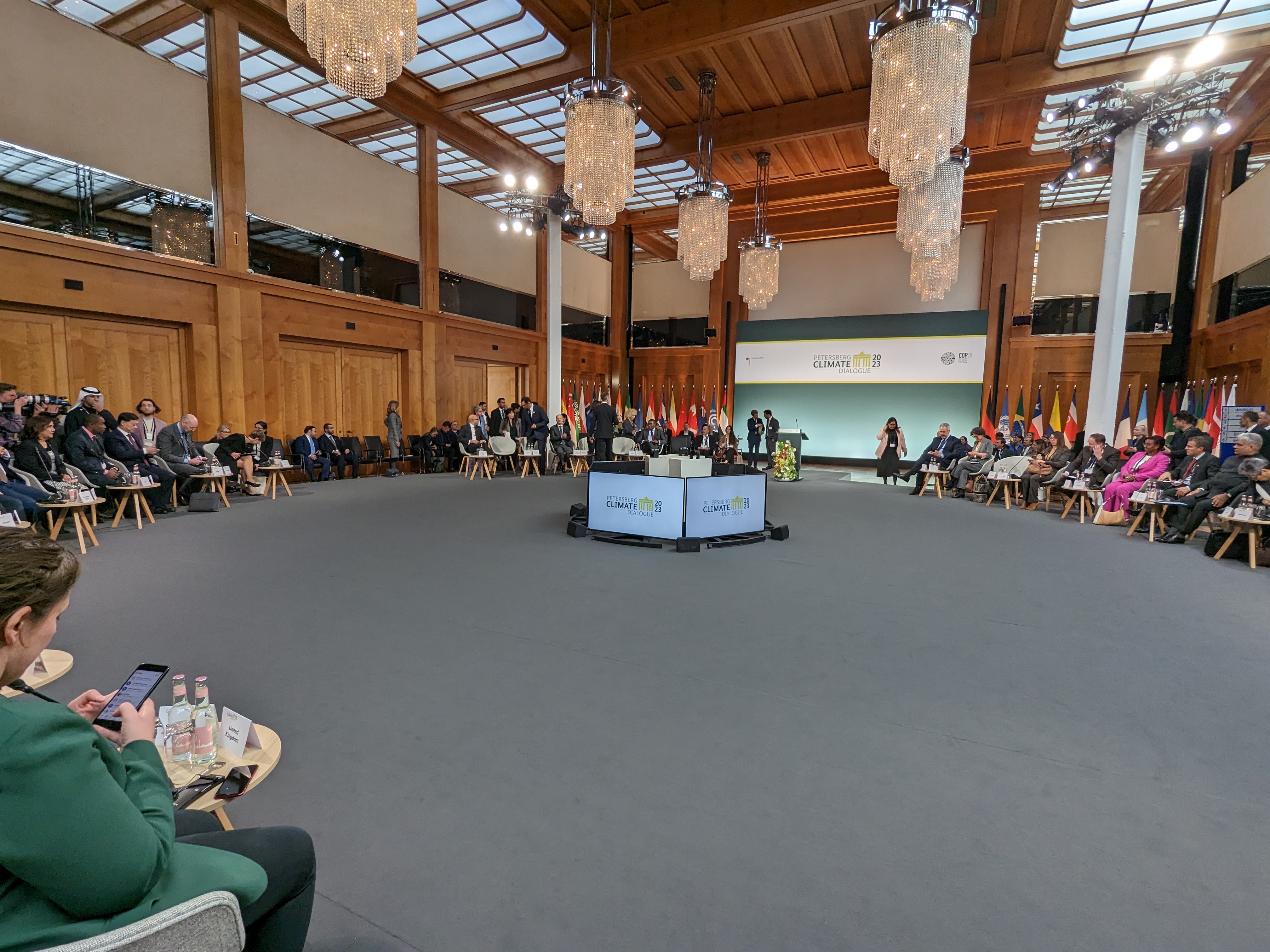Chancellor Scholz pledges 2 billion euros for Green Climate Fund
German chancellor Olaf Scholz has pledged two billion euros to the international Green Climate Fund to finance climate action in developing countries. “Germany plans to support the second round of replenishing [the Green Climate Fund] with two billion euros,” the chancellor told an audience of government representatives from about 40 countries at the Petersberg Climate Dialogue in Berlin. The pledge for the period 2024-2027 is a 33 percent increase on Germany’s contribution to the Fund’s first replenishment and, once confirmed, will be the single largest contribution in the GCF's history, said the Fund in a press release. Including this new announcement, Germany has pledged a total of 4.25 billion euros to the GCF since 2014.
Jan Kowalzig from NGO Oxfam welcomed the pledge as an important political signal, which should generate momentum among donor countries. “The fact that Germany is already making an advance commitment puts other countries under pressure, especially countries like the USA, France, Great Britain and Japan,” he said. Kowalzig explained that the two billion euros would be paid in several instalments over a couple of years, with each instalment of several hundreds of millions being part of the annual climate finance Germany has pledged to developing countries. Germany announced that it aims to reach 6 billion euros in overall annual climate finance by 2025. It provided a record 5.34 billion euros from the federal budget for climate action in developing and emerging countries in 2021.
The Green Climate Fund was set up by countries party to the UN Framework Convention on Climate Change (UNFCCC) in 2010 as an operating entity to mobilise funds for climate action in developing countries. The fund is mandated to invest half of its resources in mitigation efforts and the other half in adaptation. As of 2022 its portfolio stood at 11.4 billion U.S. dollars and included 209 projects.
In October, Germany will host a conference to replenish the Green Climate Fund in Bonn. “This is an important element of the pledge by industrialised countries to make available 100 billion U.S. dollars for climate finance,” foreign minister Annalena Baerbock said at a press conference after the two-day talks.
Germany invited government representatives from about 40 countries to meet in Berlin for the 14th Petersberg Climate Dialogue. The German government says the informal meeting's atmosphere allows more open talks and enables building ambitious alliances ahead of COP28 in Dubai in December.
In his speech, Scholz also said he supported the call for global renewables expansion targets, made by his foreign minister Baerbock and European Commission president Ursula von der Leyen. “A clear target for the global expansion of renewable energies” could be “something that we decide jointly in Dubai” at COP28, the chancellor said.
Scholz said that the goal could be a tripling of newly installed solar, wind power by 2030, echoing a target proposed recently by the International Renewable Energy Agency.
“I’m more confident than ever that the move towards renewable energies will continue and intensify,” Scholz argued. “Reaching the climate targets is no longer about whether to do it, but about how – about doing it, implementing it.”
At the conference a split among countries on how to meet international climate targets became clear, reported Frank Jordans for Associated Press. Some push for a phaseout of fossil fuels and others insist that oil and gas can continue to play a role in the future — provided their emissions are somehow contained, for example through carbon capture and storage (CCS).
NGO Germanwatch criticised that the chancellor should have made clearer where he stands on this question. “Because this is where the big conflict at the next climate summit is looming,” it said. While German foreign minister Annalena Baerbock had demanded that the climate summit in Dubai should herald the end of fossil energies, the designated president of COP28 Sultan al Jaber had said that it was not the use of oil and gas that had to be reduced, but only their emissions.
“The strong emphasis on carbon capture and storage by the future COP president shows that he does not want to end the Gulf states' dependence on fossil fuels,” said Germanwatch policy director Christoph Bals. “Al Jaber is obviously planning a programme to prolong the life of fossil fuels.”
Foreign minister Baerbock said the Petersberg Climate Dialogue “has shown that together, as nations on this planet, we can set the right goals and get things done if we work together – if those countries that really want to make a difference join forces. It's no longer about visions, it's about finally delivering,” she said. Designated COP28 president Sultan Al Jaber from the United Arab Emirates said that the climate talks in Berlin were “very productive and constructive” and centred around practical actions.

